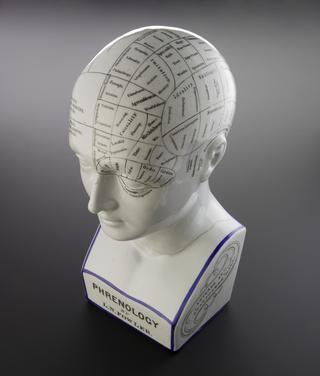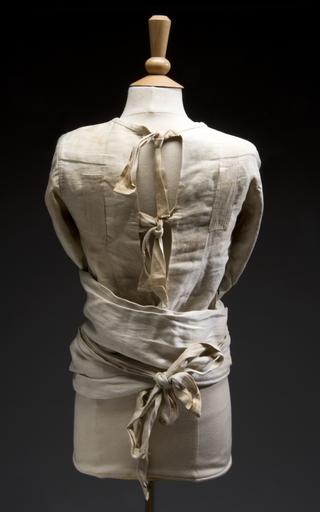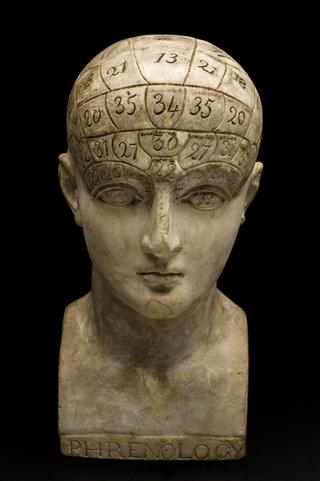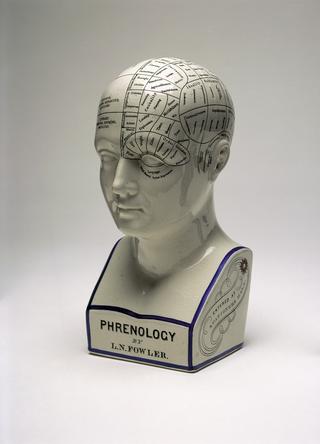
Tray for weights, from weight perception apparatus
- PART OF:
- Weight perception apparatus in case
Wooden tray with three slots for cylinder weights. The tray has the number '6' engraved on the top left corner. On the front base are engraved the numbers of the weights to be placed in the slots: '0, 6, 12'. The tray also has small metal hooks, one on top right corner and one on bottom left corner. Cambridge Instrument Co., Cambridge, 1893
An individual’s perception of weight was tested using this set of cylinders. It was designed by Francis Galton (1822-1911). The brass weights are identical in size and sit in a mahogany box.
The weight perception test was one of a series devised for Galton’s ‘anthropometric laboratory.’ Anthropometry is the scientific study of the measurements and proportions of the human body. Galton also founded eugenics, describing it as the science of using controlled breeding to increase desirable inherited characteristics. This ‘science’ became controversial. It was later marginalised through its association with the genocidal activities of Nazi Germany. The test was made by the Cambridge Instrument Company. The firm was founded by Charles Darwin’s nephew, Horace. Galton was Darwin’s half cousin.
Details
- Category:
- Psychology, Psychiatry & Anthropometry
- Collection:
- Sir Henry Wellcome's Museum Collection
- Object Number:
- A602456/6
- Materials:
- metal (unknown) and wood (unidentified)
- type:
- tray
- credit:
- Bruce, A.N.




